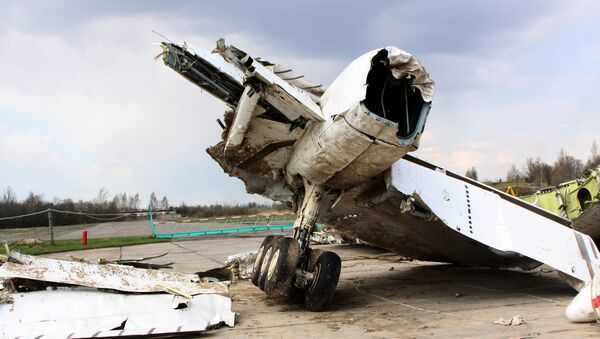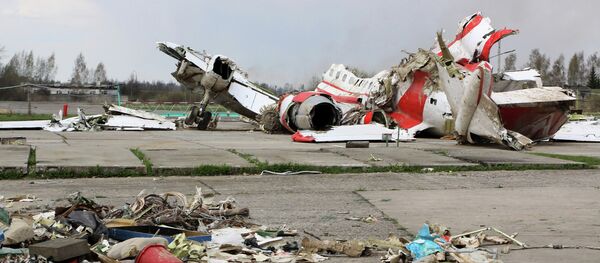"In July 2016, Waclaw Berczynski, head of the newly created Polish committee on investigation into the Smolensk plane crash contacted the IAC. The IAC head informed Mr. Berczynski through the Polish Embassy about the readiness to hold a meeting but no further contacts followed," Morozov said.
Last year, IAC representative Sergei Zayko told Radio Poland that the meeting between members of the Polish commission and the organization could take place no earlier than in late October 2016. Deputy head of the Polish commission Kazimierz Nowaczyk said that the Polish experts would visit Moscow on the invitation of IAC Chairperson Tatiana Anodina.
On April 10, 2010, a Polish jet carrying Kaczynski, his wife and officials crashed amid heavy fog as it attempted to land at an airfield near Russia's Smolensk. All 96 people on board including 88 passengers and eight crew members died in the crash.
The new Polish commission presented first results of its work in September 2016 saying that the jet started to disintegrate 900 meters (about 3,000 feet) away from the crash site with the last seconds of the flight recorders’ materials having been deleted.
The commission stated that it had succeeded to get access to the full versions of the records showing that generator, engine and devices responsible for altimetry broke shortly before the crash. Polish Defense Minister Antoni Macierewicz decided to disclose the documents linked to the plane crash.
In April 2017, the Polish commission issued new materials placing the responsibility on Russian air traffic controllers. The materials also said that a blast hit the jet before it hit the ground. The IAC rejected the conclusions made by the Polish commission as the technical committee has not revealed any traces of the explosives’ impact on the plane. The IAC also rejected the Polish commission’s allegations about the deletion of the last seconds of the flight recorders’ materials.




